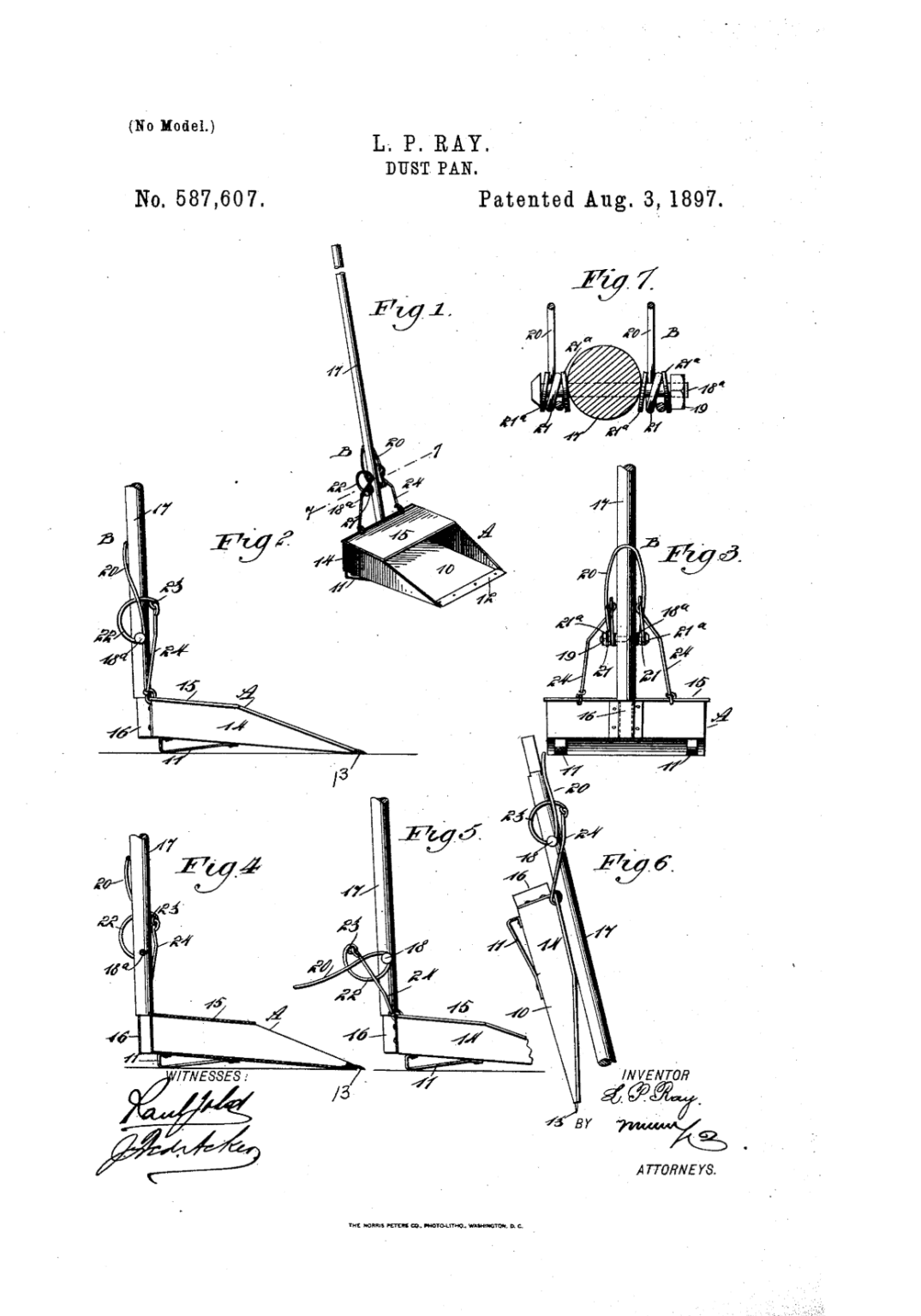On this day in 1897, Lloyd P. Ray, an African American inventor, received U.S. Patent No. 587,607 for a simple yet revolutionary device that many of us still use today: the modern dustpan.
Born on February 8, 1860, in Kentucky Town, Texas, Lloyd P. Ray came from a family of 16 siblings, raised by a mother who had once been enslaved. By the age of 10, the family relocated to Kentucky, and like many young Black boys in post-Civil War America, Ray left school as soon as he could earn wages. He moved out at 19 and wandered across the U.S., eventually landing in Seattle to help rebuild the city after its great fire. Though his mother hoped he would become a preacher, Ray found his calling working in the stone masonry trade and eventually inventing a tool that would change everyday life.
Ray’s patented cleaning tool improved sanitation and made housework easier for millions, especially for laborers and domestic workers at the time.
Before Ray’s invention, cleaning floors was a tedious, back-breaking chore. People had to use makeshift tools, or their hands, to sweep debris into piles and manually remove it. His design featured a short-handled pan with a thin front edge, allowing workers to collect dirt and waste using a broom efficiently. His invention helped streamline domestic and commercial cleaning, giving workers, many of them Black domestic laborers at the time, a more ergonomic and effective tool to do their jobs.
Ray’s contribution came during an era when Black inventors were routinely excluded from recognition and denied credit for their ideas.
Ray would meet his wife, Emma J. Smith, in Carthage, Missouri, where he turned 21 and later married at age 27. During the Alaskan Gold Rush era, they spent over two years in Missouri helping to build a Christian mission and a school for Black children.
Eventually, the Rays settled in Seattle, where they lived the rest of their lives as respected community members. Lloyd passed away on April 25, 1940, and Emma followed on August 24, 1947.


